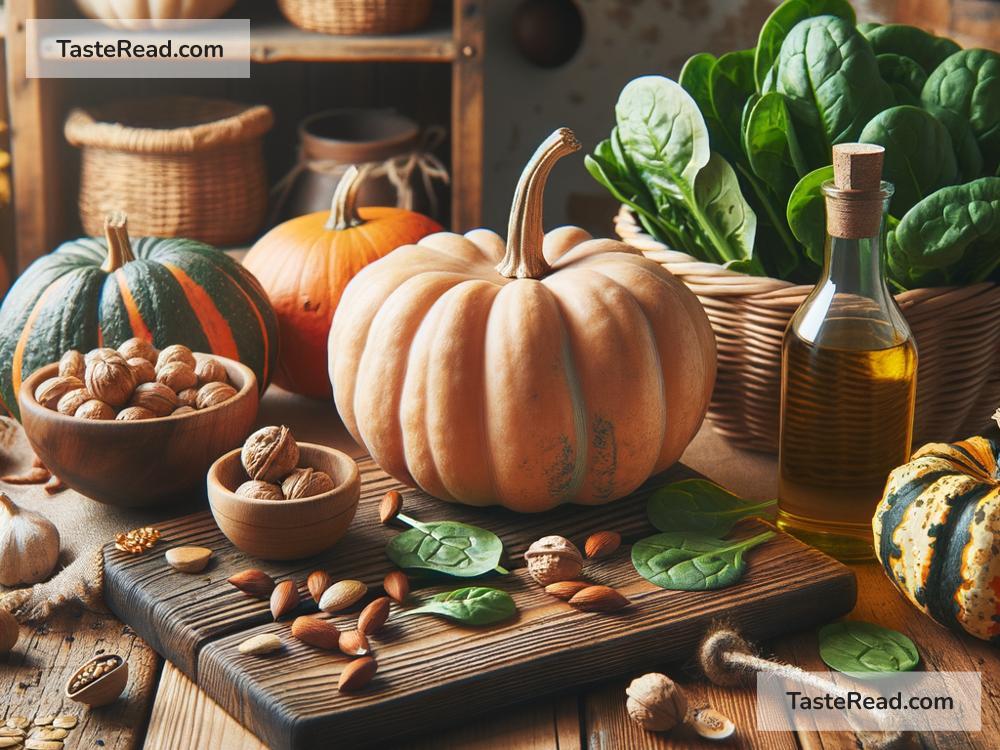Can Pumpkins Improve Heart Health?
When most people hear the word “pumpkin,” they think of autumn decorations, Halloween jack-o’-lanterns, or delicious pies. But did you know that this vibrant orange fruit is packed with nutrients that can actually help your heart stay healthy? Pumpkins not only taste great, but they also offer a wide range of health benefits, including improving heart health. Let’s explore how they do that and why you might want to include pumpkins in your diet year-round!
Packed with Heart-Friendly Nutrients
Pumpkins are a superfood, meaning they’re loaded with nutrients that are great for your health. Specifically, pumpkins contain several vitamins, minerals, and antioxidants that are particularly good for your heart:
-
Potassium: Just one cup of cooked pumpkin contains about 564 mg of potassium. Potassium is essential for maintaining healthy blood pressure levels. It helps relax the walls of your blood vessels, which can reduce strain on your heart. Eating a diet rich in potassium helps balance out the negative effects of sodium (which can raise blood pressure) and lowers your risk of developing heart disease.
-
Fiber: Pumpkins are an excellent source of dietary fiber. A high-fiber diet supports heart health by lowering “bad” cholesterol levels (LDL) and improving overall blood flow. Fiber also helps regulate blood sugar levels, which can indirectly benefit cardiovascular health by reducing the risk of diabetes—a major risk factor for heart disease.
-
Vitamin C: Pumpkins contain a good amount of vitamin C, an antioxidant that helps reduce inflammation in your blood vessels. Chronic inflammation is linked to heart disease. By eating foods rich in vitamin C, you can support the health of your heart and immune system.
-
Beta-Carotene: The bright orange color of pumpkins comes from beta-carotene, a powerful antioxidant. Beta-carotene helps protect your heart by fighting off free radicals—unstable molecules that can damage cells and lead to heart disease. Research shows that people who consume foods high in beta-carotene may have a lower risk of cardiovascular problems.
-
Magnesium: Magnesium is another important mineral found in pumpkins. It plays a key role in regulating your heartbeat and keeping your blood pressure under control. Adequate magnesium levels can reduce the risk of heart attacks and stroke.
Pumpkins and Cholesterol
A diet high in pumpkins can also help lower cholesterol levels. Fiber, as mentioned earlier, binds with cholesterol in your digestive system and removes it from your body before it can enter your bloodstream. Additionally, the antioxidants in pumpkins work to prevent oxidative damage to LDL cholesterol (the “bad” kind). When LDL cholesterol oxidizes, it’s more likely to stick to the walls of your arteries, leading to atherosclerosis—a condition where plaque builds up and narrows the blood vessels. By keeping LDL cholesterol levels in check, pumpkins can help protect your arteries and reduce your risk of heart disease.
Weight Management and Heart Health
Maintaining a healthy weight is crucial for heart health. Being overweight or obese increases your risk of heart disease, high blood pressure, and stroke. The good news is that pumpkins are low in calories but high in nutrients, making them an excellent choice for weight management. One cup of cooked pumpkin has just about 50 calories, yet it’s incredibly filling because of its high fiber content. Eating pumpkin can help you stay satisfied after meals, making it easier to avoid overeating or snacking on unhealthy foods.
Easy Ways to Include Pumpkin in Your Diet
It’s clear that pumpkins are great for your heart, but how can you add them to your meals? The good news is that pumpkins are versatile and can be used in sweet and savory dishes alike. Here are a few ideas:
-
Pumpkin Soup: Blend cooked pumpkin with vegetable stock and spices like garlic, ginger, and turmeric for a heart-healthy soup.
-
Roasted Pumpkin: Slice pumpkin into cubes, toss them with olive oil and your favorite seasonings, and roast them in the oven for a tasty side dish.
-
Pumpkin Smoothies: Add pumpkin puree to smoothies with ingredients like banana, yogurt, and a sprinkle of cinnamon for a creamy, nutrient-packed drink.
-
Pumpkin Oatmeal: Mix pumpkin puree into your oatmeal and top it with nuts, seeds, or a drizzle of honey for a heart-friendly breakfast.
-
Pumpkin Seeds: Don’t forget about pumpkin seeds! They’re rich in magnesium, fiber, and healthy fats. Snack on roasted seeds or sprinkle them over salads and yogurt.
Final Thoughts
Pumpkins aren’t just for Halloween decorations or Thanksgiving pies—they’re a powerhouse of nutrients that can improve your heart health. Their rich content of potassium, fiber, antioxidants, and vitamins makes them a heart-friendly food that deserves a place in your regular diet. Whether you choose to enjoy pumpkin soup, roasted pumpkin, or simply munch on pumpkin seeds, this orange fruit is a delicious and natural way to support your cardiovascular health.
So, as the seasons change and pumpkins appear everywhere, consider grabbing one for more than just carving. Incorporating pumpkins into your meals is an easy and flavorful way to give your heart some extra love!


